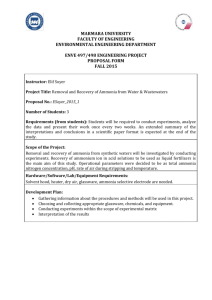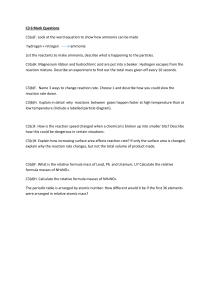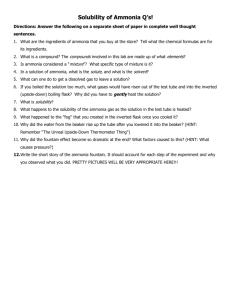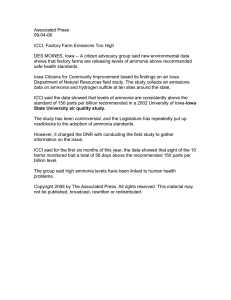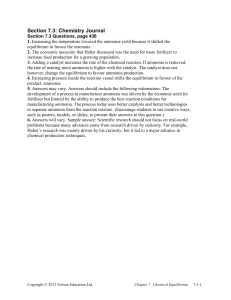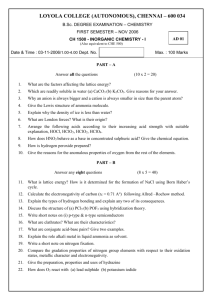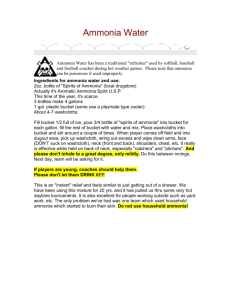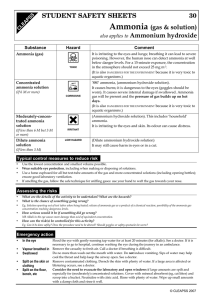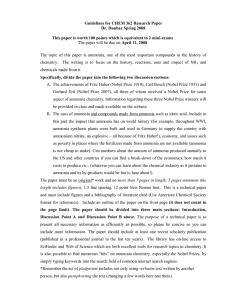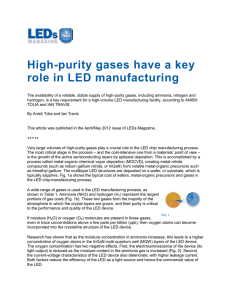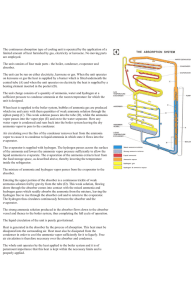Centennial Honors College Western Illinois University Undergraduate Research Day 2012
advertisement
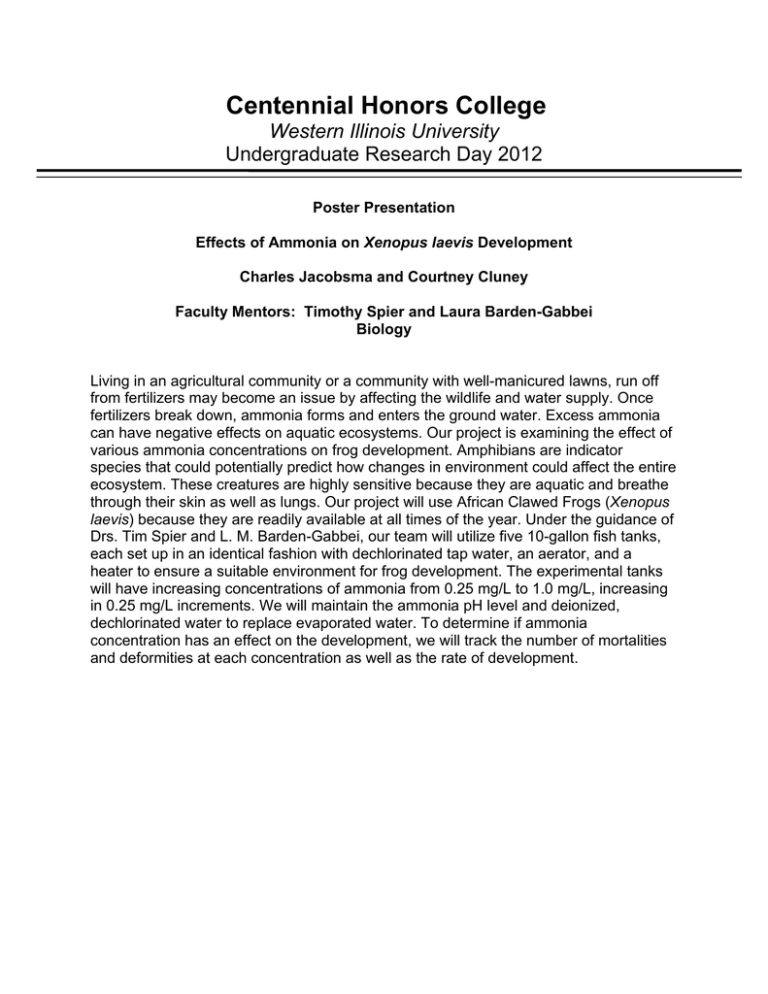
Centennial Honors College Western Illinois University Undergraduate Research Day 2012 Poster Presentation Effects of Ammonia on Xenopus laevis Development Charles Jacobsma and Courtney Cluney Faculty Mentors: Timothy Spier and Laura Barden-Gabbei Biology Living in an agricultural community or a community with well-manicured lawns, run off from fertilizers may become an issue by affecting the wildlife and water supply. Once fertilizers break down, ammonia forms and enters the ground water. Excess ammonia can have negative effects on aquatic ecosystems. Our project is examining the effect of various ammonia concentrations on frog development. Amphibians are indicator species that could potentially predict how changes in environment could affect the entire ecosystem. These creatures are highly sensitive because they are aquatic and breathe through their skin as well as lungs. Our project will use African Clawed Frogs (Xenopus laevis) because they are readily available at all times of the year. Under the guidance of Drs. Tim Spier and L. M. Barden-Gabbei, our team will utilize five 10-gallon fish tanks, each set up in an identical fashion with dechlorinated tap water, an aerator, and a heater to ensure a suitable environment for frog development. The experimental tanks will have increasing concentrations of ammonia from 0.25 mg/L to 1.0 mg/L, increasing in 0.25 mg/L increments. We will maintain the ammonia pH level and deionized, dechlorinated water to replace evaporated water. To determine if ammonia concentration has an effect on the development, we will track the number of mortalities and deformities at each concentration as well as the rate of development.
